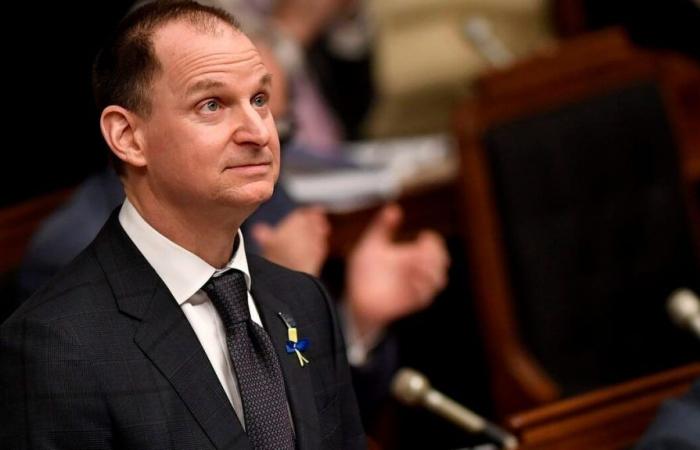During the last financial year from 1is April 2023 to March 31, 2024, the Legault government saved a lot of money with the teachers’ strike, the abolition of bonuses for nurses, and the purchase of personal protective equipment. On the other hand, he made a fair amount of money from the tax debts of Revenu Québec and even the Stock Exchange.
These are some of the financial surprises found in the 2023-24 public accounts published last week by Finance Minister Eric Girard.
THE SCHOOL STRIKE
The CAQ government “saved” the tidy sum of $651 million on the backs of teachers during the school staff strike last fall.
This “allowed” Minister Girard to largely offset the $717 million increase in school staff remuneration expenditures which resulted from the renewal of collective agreements, including $341 million in salary provisions and $376 million in compensation. step advancements and increase in teaching staff.
NURSES BONUSES CUT
In 2023-24, the Ministry of Health and Social Services reduced spending attributable to incentive bonuses paid to nurses by $760 million.
In addition, the minister was able to save $779 million on the purchase of PPE materials, i.e. personal protective equipment used during COVD-19.
Despite this “big saving” of $1.54 billion, the largest department’s spending increased by $1.66 billion. The bulk of the increase relates to the increase in compensation spending of $1.14 billion in 2023-24. This includes:
• An increase of $549 million linked to salary provisions resulting from government offers submitted and agreements concluded within the framework of the renewal of collective agreements;
• An increase of $643 million in costs relating to the use of independent labor in health and social services establishments due to the labor shortage and the increase in the rate average schedule during the financial year;
• An increase of $450 million in the remuneration of general practitioners and specialists due to the increase in the number of medical services rendered and their costs.
JUICY TAX DEBTS
In the chapter of “Miscellaneous income”, the government has sought in 2023-24 an additional sum of $1.52 billion. This includes an increase in interest income of $732 million on tax debts administered by Revenu du Québec and an increase in investment income of $304 million attributable to materialized stock market gains.
HYDRO STRUGGLED
In terms of “Revenue from government enterprises”, however, it was catastrophic because of the poor performance of Hydro-Québec, whose revenues fell in 2023-24 by $1.64 billion compared to the previous fiscal year, down by some 44.7%.
The main cause of the drop in revenue is attributable to a marked reduction in surplus electricity that Hydro can export. “This situation is due to the low hydraulicity in the regions where its main basins are located, caused by the scant snow cover at the end of winter 2022-2023, the lower water flood than normal and the precipitation modest summer and fall periods in northern Quebec,” explains the Ministry of Finance.
TRUDEAU TO THE RESCUE
The Trudeau government paid nearly $31 billion to the Legault government during the last fiscal year 2023-24, or $2.14 billion more (+7%) than in 2022-23.
This includes revenue increases of $1.63 billion in health transfers, $371 million in equalization and $157 million in transfers for post-secondary education and other social programs.
BUT IN THE END…
The Legault government’s financier ended the 2023-24 fiscal year in a $6 billion hole (before transfer of money to the Generations Fund), or $2.87 billion more than in 2022-23.






